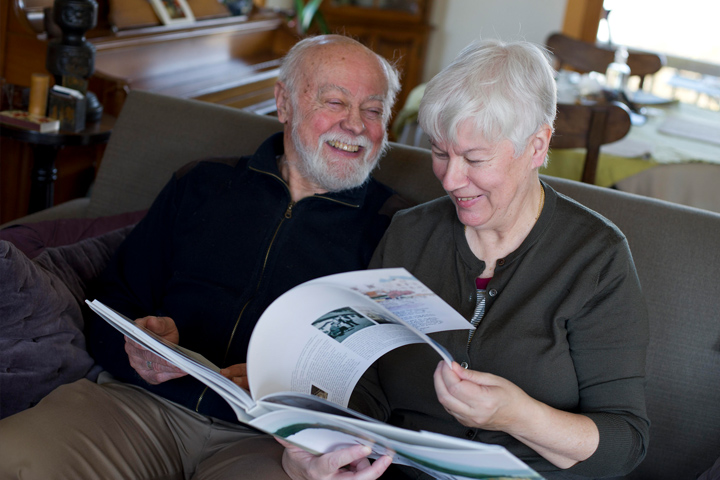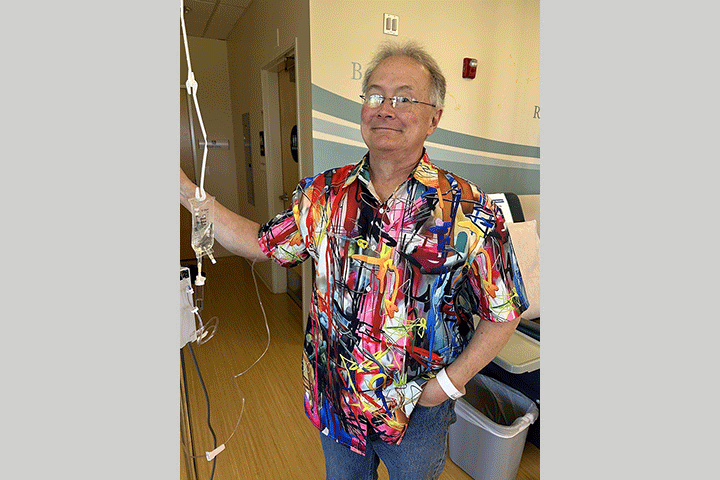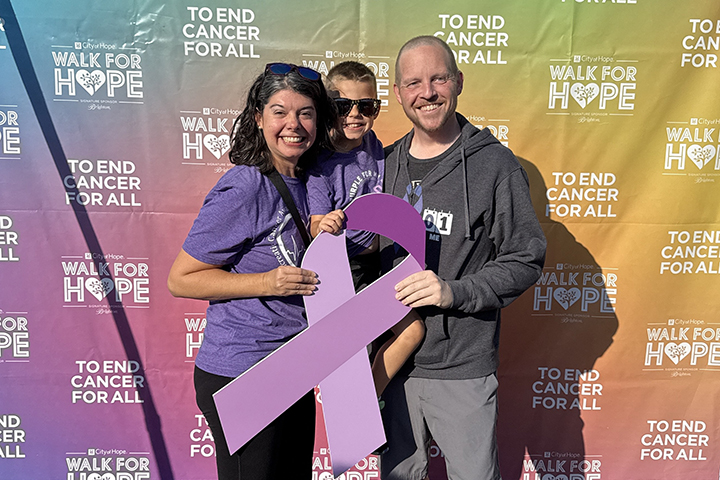Picking the Right Team

- Stage III diagnosis
- An unusual treatment plan involving chemotherapy, radiation, surgery, and more chemo
- Two cancer-free years
- Recurrence in my lungs means a new plan
With a hard-to-treat cancer such as pancreatic cancer, seeking the best expert pancreatic cancer teams in the country is what I would recommend to each new pancreatic cancer patient.
Two and a half years ago, when I learned about my cancer, I had no clue, but with hindsight I now know that I have been very fortunate to be referred to a high-class, multidisciplinary team.
In January 2016, my new primary care physician, to whom I owe eternal gratitude for her intuition, suspected a serious problem when something was not quite right with my blood work. She sent me to do more tests in one of Boston’s three major hospitals, Beth Israel Deaconess Medical Center. It was there that my surgeon, Dr. A. James Moser, co-director of the Pancreas and Liver Institute, brought me the terrible news. A tumor in the head of the pancreas, stage III, borderline resectable. I just had moved with my husband to Cape Cod and I had been looking forward to enjoying life on the seaside. I was 61. That day, my whole life changed fundamentally, within a split second.
Chemoradiation Before Surgery
The tumor was small, a little over one centimeter. In addition, no metastasis was visible; the lymph nodes seemed spared as well. I breathed with relief, for a very brief time, unfortunately. Because of its location, the tumor was already wrapped around the portal vein and my right hepatic artery, which was in a non-typical location. No surgeon would want to operate at the time—in fact, only a few will consider surgery when arteries are involved. The standard protocol for this tumor stage is chemotherapy to slow cancer growth, possibly participation in clinical trials, and a prognosis of about a year to live.
The treatment plan that my doctors recommended was unusual and innovative at the time: FOLFIRINOX for three months if I tolerated it, new CT scans for re-evaluation and, if everything went as hoped, radiotherapy with CyberKnife. Then I would have Whipple surgery followed by three months of chemotherapy to conclude the treatment. The treatment did not follow the standard protocol, which remains surgery first, followed by chemotherapy. However, recent studies are starting to show that chemotherapy prior to surgery extends patients’ lives significantly.
The Value of a Creative Treatment Team
For me, there is no doubt that my medical team was right. I am still alive, and I owe it to this top-notch multidisciplinary team. Besides Dr. Moser, they include Dr. Rebecca A. Miksad and Dr. Mary Linton B. Peters (oncologists), Dr. Anand Mahadevan (radiation oncology), Dr. Douglas K. Pleskow (gastroenterologist), Dr. Jeffrey L. Weinstein (radiologist), and oncology nurse Carol Pilgrim and treatment nurse Nicole Doucet. My team are all experts in pancreatic cancer, all brilliant, courageous, and dedicated. Brilliant because it requires acute awareness to discern what they can and can’t do to save the lives of their patients. Courageous because they need to make risky decisions outside the standard protocols. Dedicated because they have to have an inner strength to accept risks to put their patients’ lives first and to advance the standard care practices. They work as a team, bringing together their respective skills to the benefit of the patient. For me, the patient, their team approach provided seamless care among the different disciplines, a sense of security, and an enormous amount of trust in my doctors.
This was priceless. I didn’t suffer any complications, and I live a normal life, eating normally—with the help of pancreatic enzymes—and enjoying each minute of my life. I know the risk of recurrence is high, but I am ready, and I have a wonderful medical team fighting on my side.
The Next Steps
I was cancer-free for two years after my surgery, but I discovered over the summer of 2018 that I have lung nodules that are growing slowly. One was big enough to be biopsied in August, and the results showed that the nodules are slow-growing metastases. I have appointments scheduled for the coming weeks, including one with a thoracic surgical oncologist, to figure out which option is the best for me. The goal is to give me more time and a high-quality life. Who knows, we may be able to turn this cancer into a chronic disease.
I was pleased to learn that the doctors now get enough biopsy tissue to do molecular profiling. I had the primary tumor profiling done with the Know Your Tumor precision medicine service . I learned I have the typical KRAS and p53 mutations and am MSI stable and PD-1/PD-L1 negative, which means I am not a good candidate for immunotherapy. I think the program is great but my expectations for information that would guide my treatment were too high. I was disappointed by my results, until I learned that only half of the people who get tumor profiling find a mutation that can direct treatment. I will have my lung nodules profiled, and it will be interesting to compare the results.
Helping Those Who Come After Me
I am trying to be an advocate as best as I can for patients and for cancer research. I am the co-moderator of a pancreatic cancer forum on The Cancer Forums, and am active on other forums. I participate in PanCAN PurpleStride, National Advocacy Day in Washington D.C., and other events. I recently became a Board Member of the nonprofit AFFPC, and will attend the Boston AACR conference on pancreatic cancer.
I enrolled in a research study directed by Senthil K. Muthuswamy, Ph.D., where some of the tissues from my biopsy will be grown into living organoids, and later used for testing drugs. I also joined a biomarker study through Dr. Moser.
In my view, there have been amazing advances in surgery as surgeons get more aggressive in treating tumors with vascular involvement or removing metastases in selected situations. I believe these advances deserve more attention, as they really give us a chance to live longer, and in my case, live longer well.
Brigitte passed away almost six years after her diagnosis of pancreatic cancer. She was an active advocate, working with patients and seeking research studies. We offer our deepest sympathy to her family.





